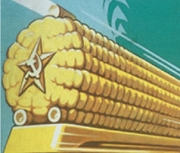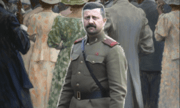|
What is the most powerful flying bug? This poll is closed. |
|||
|---|---|---|---|
| 🦋 |
|
15 | 3.71% |
| 🦇 |
|
115 | 28.47% |
| 🪰 |
|
12 | 2.97% |
| 🐦 |
|
67 | 16.58% |
| dragonfly |
|
94 | 23.27% |
| 🦟 |
|
14 | 3.47% |
| 🐝 |
|
87 | 21.53% |
| Total: | 404 votes | ||
|
Adenoid Dan posted:The position that history is not relevant to current events is the most dnd thing ever
|
|
|
|

|
| # ? Jun 11, 2024 01:18 |
|
Regarde Aduck posted:gently caress the police the revisionism is coming from inside the forums
|
|
|
|
Regarde Aduck posted:gently caress the police im shocked that the single dumbest person in the history of these forums is doing this
|
|
|
|
Frosted Flake posted:It depends on what section of what book, since he says a few different things, but for instance in Death of the Wehrmacht, he says: The book in question would be the one I mentioned  which is the only one of his I have read, and it did not inspire me to immediately order more, thought I guess that's because his history is the weakest for the first half of the book where he deals with early Prussian history? Perhaps his pure WW2 books are better? One thing that certainly raised my eyebrow was how he would quite frequently put wargaming magazines like Strategy and Tactics as source in his footnotes, including for pretty basic information stuff like OOBs... (Especially after he, in the foreword of The German Way of War calls out the risk of military history becoming dominated by hobbyists...) which is the only one of his I have read, and it did not inspire me to immediately order more, thought I guess that's because his history is the weakest for the first half of the book where he deals with early Prussian history? Perhaps his pure WW2 books are better? One thing that certainly raised my eyebrow was how he would quite frequently put wargaming magazines like Strategy and Tactics as source in his footnotes, including for pretty basic information stuff like OOBs... (Especially after he, in the foreword of The German Way of War calls out the risk of military history becoming dominated by hobbyists...)
PoontifexMacksimus has issued a correction as of 22:11 on Oct 2, 2023 |
|
|
|
well good news, lil' buddy! you're about to get way stronger soon!
|
|
|
|
Frosted Flake posted:Ammo plz Organ Fiend posted:"We have ammo at home" U.S. focuses on training Ukrainian troops to use less ammo - Feb 2023 Politico
|
|
|
|
BearsBearsBears posted:Prodigious ammo-wasters like Frosted Flake will be retrained in Ukrainian tactics in order to learn how to stop wasting ammo. This will probably involve an app. You don't need ammo to win a war, you need grit, drive, and spirit. Go get'em!
|
|
|
|
Frosted Flake posted:Ammo plz quit beggin 4 artillery shells, we bought u a nice new himars
|
|
|
|
PoontifexMacksimus posted:and would not say did not inspire me to immediately order more, did you or did you not not say this
|
|
|
|
Frosted Flake posted:The Second Polish Republic was also an avowed enemy of the USSR lol. Poland in 1918 was also a devoted enemy of Ukraine and fought a literal war to crush their Independence movements, including of a potential Galizian statelet, lol, Piłsudski reached Kyiv and not for humanitarian reasons. Are there people seriously trying to argue that Brest-Litovsk was driven by a German desire for Eastern European freedom? Frosted Flake posted:Until, what, the mid 90's? You couldn't point out that the Warsaw Uprising was timed to spite the Soviets, not to help them advance or synchronize with their own operations or anything. Pretty sure there were fresh pogroms in Poland already in 1945-1946. Psycho Society posted:did you or did you not not say this Apologies for the confused prose; corrected.
|
|
|
|
In fact, it seems like Ukraine’s time of greatest prosperity was when it was one of the SSRs. At least it was the moment where it’s population was at it’s peak and when it had the largest recognized territory. Something like a loss of 1/4th of its population between 1991 and 2019.
|
|
|
|
those werent real ukrainians to those who actually matter, the nazi diaspora
|
|
|
|
The refrain to check your sources before posting when there's a continous stream of toxic waste directly from the ISW and unnamed Ukrainian sources* which is accepted without comment or introspection is somewhat galling *And that's just the posts in this thread from fizzy!
|
|
|
|
simply stop reading d&d, the worst forum on earth
|
|
|
|
Source checking is for losers. Nobody gives a poo poo how many sources you can present proving that there are Ukrainian nazis because they're all loving tankie lies.
|
|
|
|
ISW broke the news of the entire Russian admiralty being sent to oblivion by a Ukrainian MOAB
|
|
|
|
Also proving that they're nazis is entirely pointless when the people demanding proof approve and support nazis anyway.
|
|
|
|
Raskolnikov38 posted:simply stop reading d&d, the worst forum on earth time for my monthly forum search of 'tankie' but i think im also going to search 'waffen' lol, theres got to be some good stuff there
|
|
|
|
PoontifexMacksimus posted:The book in question would be the one I mentioned One of our posters studied under him iirc, though I forget who. I think he got more confident as he went on, having developed a theory of the German system, The Wehrmacht Retreats compares it to the Americans, Brits and Soviets, and I think is fair to each and in line with the scholarship. I don't fault him for going over Prussian history. Books on the French Army of 1914 explain the wars of the Sun King, books on the British Army start at Marlborough. I think it's important to see that these ideas don't emerge out of nowhere. Of course going over the campaigns of Frederick the Great and Bismarck risks falling into the same trap of placing the Wehrmacht on a pedestal. At the same time, the fact that Wehrmacht officers themselves did constantly think of those leaders and campaigns does imo help explain some of their own actions. I don't know, I go back and forth on that particular point. For the footnotes, I'm with you. It's much easier to use those magazines than the military journals or specialist literature because they often provide a gloss and make their points more succinctly. On the other hand, you could just go a bit further and use the sources the magazines are pulling form and distilling for the hobby crowd. I think Citino is basically correct, though I think the larger cultural history point, that the postwar US Army effectively "invented" Blitzkrieg and Mission Tactics, risks losing your audience. I also think that's more interesting and worthy of study.
|
|
|
|
Raskolnikov38 posted:simply stop reading d&d, the worst forum on earth
|
|
|
|
Frosted Flake posted:One of our posters studied under him iirc, though I forget who. I think he got more confident as he went on, having developed a theory of the German system, The Wehrmacht Retreats compares it to the Americans, Brits and Soviets, and I think is fair to each and in line with the scholarship. Oh, I am not faulting him for going over early Prussian history, that's the entire point of the book, to show that war by manoeuvre and mission tactics (as two equally important and mutually reinforcing aspects) were traditions stretching back to the Great Elector, I just thought his scholarship on the 17th century was shoddy, since it seemed to be based on a pretty limited number of entirely German sources (including hagiographies about said Great Elector). But that was really my issue with the book, since the idea of a coherent military ideology lasting for over 300 years is pretty far fetched to begin with, and I don't think he really makes the case that such a coherence existed or would have been communicated, beyond 19th century Generalstab authors writing post-hoc analyses. Like I wrote, he is probably better dealing with more concentrated periods of time.
|
|
|
|
Raskolnikov38 posted:simply stop reading d&d, the worst forum on earth yeah just stop. nothing good to be gained
|
|
|
|
Nonsense posted:ISW broke the news of the entire Russian admiralty being sent to oblivion by a Ukrainian MOAB Got the footage. https://www.youtube.com/watch?v=ex3C1-5Dhb8&t=19s Russia is done for now. EDIT: Also, I loled watching that film when the US Army Bolo sized tanks appeared with the rebranding on them. 
Skaffen-Amtiskaw has issued a correction as of 22:41 on Oct 2, 2023 |
|
|
|
PoontifexMacksimus posted:But that was really my issue with the book, since the idea of a coherent military ideology lasting for over 300 years is pretty far fetched to begin with, and I don't think he really makes the case that such a coherence existed or would have been communicated This was what the Royal Navy was until Thatcher, or British infantry firepower was... until Thatcher.
|
|
|
|
wow the subforum that joyously cheered as the us goose stepped into a 2 decade Muslim Holocaust has other bad opinions? fake edit: waffen d&d
|
|
|
|
genocidophile
|
|
|
|
https://twitter.com/ZelenskyyUa/status/1708946323595030578?s=20
|
|
|
|
Ah, the war to end all wars. Very good.
|
|
|
|
The Great War Part III: An End To All Wars 2, The Unrelenting.
|
|
|
|
Homeless Friend posted:time for my monthly forum search of 'tankie' but i think im also going to search 'waffen' lol, theres got to be some good stuff there hf sitting in their overstuffed chair next to a roaring autumn fire with a piping cup of tea and keyword searching "tankie"
|
|
|
|
Frosted Flake posted:This was what the Royal Navy was until Thatcher, or British infantry firepower was... until Thatcher. it's weird isn't it, how the IRA won when they failed to kill her. What a dumb own goal that could have been.
|
|
|
|
Lostconfused posted:I'm always a bit skeptical of this account, but this one is pretty straight forward that anyone can work out for themselves. The total disconnect between the rhetoric vs. the actual actions of the west is darkly hilarious. "THIS IS AN EXISTENTIAL WAR FOR THE SAKE OF DEMOCRACY, HUMAN RIGHTS, AND THE VERY EXISTENCE OF THE WEST ITSELF. WE MUST SUPPORT UKRAINE WITH EVERYTHING WE HAVE IN THIS FIGHT FOR FREEDOM oh wait you want us to spare <1% of our GDP to keep your budget afloat? Eh that's a little too much, we can't just give that away without some kind of return on investment, you know? Maybe you guys should privatize your economy more and enact these "anticorruption" reforms first. Oh and don't worry those F16s are.... um, well, they're coming! Eventually. Just be patient, no rush."
|
|
|
|
Frosted Flake posted:This was what the Royal Navy was until Thatcher, or British infantry firepower was... until Thatcher. I think it is fair for a book devoted to a thesis of doctrinal continuity to spend more time on the specifics of what institutions actually performed and enforced said continuity. I would ask nothing less from a history of the Royal Navy. If there was an "English Way of War" on land and sea I would be specifically interested in what actually made the continuity work. Did the Royal Navy continue to succeed due to institutional and doctrinal continuities, or due to underlying material factors that would continue to remain in place even after the lessons of previous generations become rotes or myths to be ignored or appealed to as new battles dictated?, myths through which future successes could be interpreted but which did not actually inform them? Real continuity is different from the mere survival of institutions of the same name; the Greeks following Alexander could claim that beating Persians was due to inherent Greek qualities, but that does not actually imply any real direct continuity between Marathon and Issus, that is just a new event interpreted through the lens of existing mythologised history. Again, I am perfectly happy to believe that Citino just bit off more than he could chew in terms of longue durée military history. But I have barely begun to scratch the surface of Glantz, so my WW2 reading list is stacked either way. (Haven't had a chance to open Bailey's Field Artillery and Fire Power either for that matter, work has been hectic. But did pick up an interesting new book by a Kiley on Napoleonic field artillery...) PoontifexMacksimus has issued a correction as of 23:52 on Oct 2, 2023 |
|
|
|
Skaffen-Amtiskaw posted:The Great War Part III: An End To All Wars 2, The Unrelenting. If it never ends it's no longer a war just a regular weekday with warlike elements.
|
|
|
|
Minenfeld! posted:The Wehrmacht and Waffen SS both were the military force of a government that launched an explicitly genocidal war. I'm sure individual soldiers were nice and liked puppies but they still were part of a genocidal war. individual wehrmacht soldiers were reasonably often conscripts caught in a really lovely situation. some people who were active resistance members (at least in the white rose-style civilian resistance) still served their tours of duty in the wehrmacht. the organisation was a nazi organisation, but one of which you really couldn't escape being a part and i think there must be room for forgiving hansi from lower saxony who got called up and couldn't see what else to do. the goddamned ss though lol come the gently caress on
|
|
|
|
PoontifexMacksimus posted:I think it is fair for a book devoted to a thesis of doctrinal continuity to spend more time on the specifics of what institutions actually performed and enforced said continuity. I would ask nothing less from a history of the Royal Navy. If there was an "English Way of War" on land and sea I would be specifically interested in what actually made the continuity work. Did the Royal Navy continue to succeed due to institutional and doctrinal continuities, or due to underlying material factors that would continue to remain in place even after the lessons of previous generations become rotes or myths to be ignored or appealed to as new battles dictated?, myths through which future successes could be interpreted but which did not actually inform them? Real continuity is different from the mere survival of institutions of the same name; the Greeks following Alexander could claim that beating Persians was due to inherent Greek qualities, but that does not actually imply any real direct continuity between Marathon and Issus, that is just a new event interpreted through the lens of existing mythologised history. Destructive and Formidable: British Infantry Firepower 1642 - 1765 In the seventeenth and eighteenth centuries, the British Army’s victories over the French at battles such as Blenheim in 1704, Minden and Quebec in 1759, and over the Jacobites at Culloden in 1746, were largely credited to its infantry’s particularly effective and deadly firepower. For the first time, David Blackmore has gone back to original drill manuals and other contemporary sources to discover the reasons behind this. This book employs an approach that starts by considering the procedures and practices of soldiers in a given period and analyses those in order understand how things were done and, in turn, why events unfolded as they did. In doing so, he has discovered a specifically British set of tactics, which created this effectiveness and allowed it to be maintained over such a long period, correcting many of the misconceptions about British infantry firepower in the age of the musket and linear warfare in a major new contribution to our understanding of an important period of British military history. THE PERFECTION OF MILITARY DISCIPLINE: The Plug Bayonet and the English Army 1660-1705 The book re-evaluates both the plug bayonet as a weapon and its implementation which fundamentally changed how it impacted both the formation and tactics of all armies of the long seventeen century. The plug bayonets reputation was marred by General Hugh Mackay following his defeat at the Battle of Killiekrankie on the 27th July 1689 when he supposedly stated: ‘his men were defeated by an unforeseen technical flaw in their weaponry [plug bayonet]’. This view of the plug bayonet has been re-iterated constantly over the following 300 years, with military historian’s sideling the plug bayonet as a dead-end technology with little to commend it. While the introduction of the bayonet was a monumental step in the development of infantry in infantry tactics from pike to shot, one chapter will look at some of the other important developments with military technology. It will look at the arguments of matchlock vs flintlock and how they developed, and the introduction of Chevaux de frise, etc. It will prove that unlike some previous assertions, advancements within this sphere were not linier in nature. I will show that the adoption of the bayonet or the re-adoption of the pike were down to individual regimental colonel’s perception of these weapons, and in some cases the overall general in charge of specific operations. The following chapter investigates the changes within infantry battalion drill’s and organisation. How foot battalions went from up to one third of all soldiers armed only with defensive weapons (the pike) to battalions fully armed with both offensive and defensive weapons, the musket with bayonet. This development increased the firepower of any one battalion by up to one third, a step which was as a direct consequence of the introduction of the plug bayonet. The book will show that the plug bayonet was not only in use with English forces during the Dunkirk campaign in the early 1660’s, but the English establishment bought into the idea of the plug bayonet earlier than previously thought and placed large orders from the 1670’s, with the Board of Ordnance ordering 10,000 plug bayonets in 1678. Additionally, it will show that contemporary privately printed drill manuals are a valuable and accurate tool for identifying changes in military drill. It will identify how issues of supply and demand affected both English and continental armies. This is the first book whose primary focus is on the plug bayonet and its lasting impact on military tactics and equipment. The book will highlight that a piece of technology, which was derived from a civilian hunting weapon developed to hunt boar’s during the 16th century, that was still in use as such in Spain and Germany in the 19th century, transferred to an important piece of military equipment. As such, the plug bayonet was in use with the English army from c1660 until after 1700, being in use for over 40 years of service and as such does not deserve its reputation as a failure. The British Infantry, 1660-1945: The Evolution of a Fighting Force The British Infantry 1660-1945" is author Frederick Myatt's extended 1983 essay on the evolution of infantry as a key component of the British Army. Myatt was a veteran of the Second World War and of the post-war British Army training establishment, and a military historian. The presentation in "British Infantry" falls into the gray area between popular history and more serious scholarship. After an awkward first chapter on the pre-historic roots of the infantry, Myatt's narrative gets properly underway with the mustering of the first permanent infantry units during the English Civil War and the Restoration of the British Monarchy. The suceeding chapters cover interal rebellions in Britain (the '15 and the '45) and the Seven Years War on the continent. A major portion of the narrative is reserved for the Napoleonic Wars, in particular the British experience under Wellington in the Peninsular War. A century of imperial policing follows the Battle of Waterloo, interupted by the Crimean War and the South African War. Coverage of the First and Second World Wars close out the book. Myatt's emphasis is on the organization, equipping and general employment of infantry units. This narrative tends inevitably to focus on the evolving use of the famed British regimental system, as regiments expand from single to multiple battalions and back again during and after major conflicts. The British infantry is awarded due credit for its generally decisive role in Britain's many wars. Myatt notes that military reform generally lagged behind actual battlefield requirements of the moment; shortfalls were often made good by good discipline and exceptional morale. The Wandering Army: The Campaigns that Transformed the British Way of War A compelling history of the British Army in the eighteenth and nineteenth centuries-showing how the military gathered knowledge from campaigns across the globe At the outbreak of the War of Austrian Succession in 1742, the British Army's military tactics were tired and outdated, stultified after three decades of peace. The army's leadership was conservative, resistant to change, and unable to match new military techniques developing on the continent. Losses were cataclysmic and the force was in dire need of modernization-both in terms of strategy and in leadership and technology. In this wide-ranging and highly original account, Huw Davies traces the British Army's accumulation of military knowledge across the following century. An essentially global force, British armies and soldiers continually gleaned and synthesized strategy from warzones the world over: from Europe to the Americas, Africa, and Asia. Davies records how the army and its officers put this globally acquired knowledge to use, exchanging information and developing into a remarkable vehicle of innovation-leading to the pinnacle of its military prowess in the nineteenth century. Peninsular Preparation: The Reform of the British Army 1795–1809 This book describes the rebirth of British military power and hence of the authority of her diplomacy. When England went to war with revolutionary France in 1793 her army was weak from ten years of neglect of discipline and training, from political interference in the selection of its officers and from the failure of her recruiting policies. To these disadvantages were added a cumbrous system of political control, divided counsels and inept strategy. The result was defeat in her attempted continental campaigns of 1793–95 and the loss of the respect of both her allies and her enemy. The work of reform began in 1795. From being the least feared of France's principal enemies, the British army became a force capable of winning the victories of the Peninsular War, of making a real and weighty contribution to the overthrow of Napoleon, and of compelling attention to Britain's voice in the Congress of Vienna which created the Europe of the nineteenth century. Professor Glover studies this transformation in detail. Wellington's legacy: the reform of the British Army: 1830-54 Strachan has written an excellent study of reforming efforts in the British army during the two decades before the Crimean War. In so doing, he reexamines the organization and structure of the pre-Crimean British army and takes issue with the often-cited thesis that little had changed since the Napoleonic wars and that military reform in Britain dates from the embarrassment and public outcry following the Sevastopol campaign. His central theme is that, in spite of conservative and frequently unsympathetic military and political leadership. often centered on the aging duke of Wellington, the British army was making significant progress in reforming itself in many areas on the eve of the Crimean War. The year 1854 found the work incomplete, and the failure to reform the higher administration of the army tended to undermine the progress that had been achieved in other areas. Focusing his study on the organization and structure of the army, Strachan provides detailed information about the objectives and goals of the reform. From Boer War to World War: Tactical Reform of the British Army, 1902-1914 Jones aims to determine the extent to which the lessons of the Boer War contributed to the tactical proficiency of and "elitism" in the BEF during the first months of the First World War. He argues that the Boer War played a major role in shaping the British tactics and that although some lessons went unlearned or were neglected between 1902-1914, on the whole the conflict gave British units a tactical edge against their continental opponents in 1914. The book is organized thematically. The first chapter summarizes the Boer War and its main features and provides much of the necessary background for subsequent analysis. The second chapter addresses the British approach to the study of war and argues that the absence of a General Staff similar to that of the French or German armies inhibited the BEF (along with its ambiguous role as both an imperial police force and an army meant for intervention in a continental war) from adopting a concrete military doctrine. The subsequent three chapters explore the effects of the Boer War on artillery, infantry, and cavalry tactics. Jones begins each chapter by discussing how each arm adapted to the conditions of the war in South Africa and then proceeds to determine what lessons were learned and the extent to which the necessary changes were made before 1914. Finally, Jones assesses how each arm performed in August and early September 1914 and concludes that BEF tactical effectiveness in the opening phase of the First World War was largely the consequence of the British experience in the Boer War. In other words, the lessons of the Boer War gave the BEF a tactical advantage over its French and German counterparts. Jones's narrative is fluid and the thematic organization suits the study well. His thorough mining of the National Archives records is impressive and his research is complete. His analysis of the period between the Boer and First World Wars is the strongest, particularly with regard to how the Boer War sparked tactical debate within the British Army after the Russo-Japanese War of 1904-5. Generally speaking, Jones suceeds in proving his underlying thesis that the BEF of 1914 was elite due to the lessons of the Boer War. However, his analysis of BEF tactics in 1914 is oftentimes brief and incomplete. For instance, in his discussion on the infantry and entrenchment Jones argues that the Boer War imparted on the British Army an appreciation for entrenchments and field defences and argues that British infantry were well aware of the importance of deep trenches to protect soldiers from enemy artillery fire. However, Jones does not analyze how the BEF reacted to the first inception of trench warfare north of the Aisne River between 13-15 September 1914. Here, British infantry and senior British officers dug in according to pre-war guidlines but quickly learned that some lessons of the Boer War, namely that trenches should be sited at the bottom of a forward slope, were highly unsuited to war against a continental adversary. Jones does admit that the First World War changed British conceptions of entrenchment, but the example of the Aisne suggests that the Boer War did not prepare the BEF for war in 1914 to the degree that Jones believes. Overall, this book is an important contribution to the historiography of the pre-war BEF and the literature surrounding the tactical debates of 1905-14. In most cases Jones makes a clear connection between the British tactical prowess relative to the French and German artmies in 1914 and the experience of the Boer War in 1899-1902. Most significantly, Jones demonstrates that the Boer War was a catalyst to reform and that reform itself was more thorough and had a greater impact that historians have hitherto recognized. This volume's historiographical significance, thematic organization, and fluid narrative make it appealing to academic military historians and non-academic history buffs alike. Battle Tactics of the Western Front: The British Army`s Art of Attack, 1916-18 Historians have portrayed British participation in World War I as a series of tragic debacles, with lines of men mown down by machine guns, with untried new military technology, and incompetent generals who threw their troops into improvised and unsuccessful attacks. In this book a renowned military historian studies the evolution of British infantry tactics during the war and challenges this interpretation, showing that while the British army's plans and technologies failed persistently during the improvised first half of the war, the army gradually improved its technique, technology, and, eventually, its' self-assurance. By the time of its successful sustained offensive in the fall of 1918, says Paddy Griffith, the British army was demonstrating a battlefield skill and mobility that would rarely be surpassed even during World War II. Evaluating the great gap that exists between theory and practice, between textbook and bullet-swept mudfield, Griffith argues that many battles were carefully planned to exploit advanced tactics and to avoid casualties, but that breakthrough was simply impossible under the conditions of the time. According to Griffith, the British were already masters of "storm troop tactics" by the end of 1916, and in several important respects were further ahead than the Germans would be even in 1918. In fields such as the timing and orchestration of all-arms assaults, predicted artillery fire, "Commando-style" trench raiding, the use of light machine guns, or the barrage fire of heavy machine guns, the British led the world. Although British generals were not military geniuses, says Griffith, they should at least be credited for effectively inventing much of the twentieth-century's art of war. Victory to Defeat: The British Army 1918–40 A compelling history of the decline of an army from the triumph of victory in 1918 to defeat in 1940 and why this happened. A salutary warning for modern Britain. The British Army won a convincing series of victories between 1916 and 1918. But by 1939 the British Army was an entirely different animal. The hard-won knowledge, experience and strategic vision that delivered victory after victory in the closing stages of the First World War had been lost. In the inter-war years there was plenty of talking, but very little focus on who Britain might have to fight, and how. Victory to Defeat clearly illustrates how the British Army wasn't prepared to fight a first-class European Army in 1939 for the simple reason that as a country Britain hadn't prepared itself to do so. The failure of the army's leadership led directly to its abysmal performance in Norway and France in 1940. Victory to Defeat is a captivating history of the mismanagement of a war-winning army. It is also a stark warning that we neglect to understand who our enemy might be, and how to defeat him, at the peril of our country. The British Army is now to be cut to its smallest size since 1714. Are we, this book asks, repeating the same mistakes again? And We Shall Shock Them: The British Army in the Second World War The author brings to life every major campaign fought by the British Army in the Second World from the momentous defeats in France, Belgium and the Far East in the early stages of the war, through to the final victories against Germany and Japan in 1945. All aspects of the conflict are described, from grand strategy at the highest levels right down to the experience of infantry, gunners and tankers in the field as the British army battled its way through the war. The book shows how the seeds of World War II were sown at the end of the previous war, twenty-one years earlier, and how successive governments in the twenties and thirties failed to safeguard Britain from the building threat from Germany. It describes how by the beginning of the conflict Hitler's armies were superior in every respect. But as the catalogue of defeats mounted, the British army were learning hard lessons, and painfully acquiring the skills needed to turn the tables. It is therefore a story which moves from triumph to tragedy, and then upward again to triumph at the last.
|
|
|
|
gradenko_2000 posted:Bad news for people who value their sanity: Fighting against the USSR didn’t necessarily make you a Nazi i was going to say somethin like ‘they’re deploying the association of clarity with stupidity - “actually the motives of the Schutzstaffel were really complicated, you wanna be intelligent and question received wisdom right?” very sinister’ but then later in the piece he just openly states that. What can you say but lmao
|
|
|
|
gradenko_2000 posted:Bad news for people who value their sanity: Fighting against the USSR didn’t necessarily make you a Nazi "Listen, SS Galicia and friends are like Cosa Nostra associates - they're not made men so they're never prosecuted under RICO and other related statutes as being part of the criminal networks with the made man that run things, right?!"
|
|
|
|
Regarde Aduck posted:gently caress the police Lol at Neurolimal just posting citations to get banned in the end anyways.
|
|
|
|

|
| # ? Jun 11, 2024 01:18 |
|
Adenoid Dan posted:The position that history is not relevant to current events is the most dnd thing ever I knew a right wing guy like that back in 2016 if you tired to point to history to why his ideas were bullshit hed just dismiss it like that was than this now. He was a big fan of the Charlottesville march, so you know D&D keeping the type of anti-Soviet company they prefer
|
|
|



























